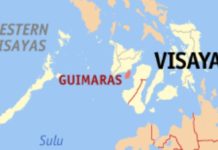
THE PROVINCAL government of Negros Occidental has a proposal to the national Inter-Agency Task Force (IATF) that is worth considering – COVID alert levels should be determined per local government units (LGUs) instead of per province. And this proposal has the backing of the Department of Health – Western Visayas.
This proposal, however, is silent on who should do the determination. Is it still the IATF? Or should the LGUs themselves do it? Or should it be the regional DOH office?
Why not leave to LGUs the management of alert level classification in their areas of jurisdiction? They are in a better position to assess the situation on the ground, anyway.
We submit that this function should have been devolved to LGUs long time ago. Why? Because LGUs know better their situation.
But pending action on this proposal by the Negros Occidental provincial government, the least that the national government could do is to classify the risk levels on a per province basis. Each province has a different COVID-19 case load anyway. While the National Capital Region’s classification is based on the recommendation of the Metro Manila Council composed of the 17 mayors, provinces should be treated separately from each other.
Under Alert Level 1, the IATF allows intrazonal and interzonal travel regardless of age and comorbidities. Movement of persons regardless of age but with restrictions on crowded and closed spaces and close contact settings, and full capacity in private establishments and government agencies are also allowed, subject to minimum health protocols.
Under Alert Level 2, intrazonal and interzonal movements are permitted, subject to reasonable restrictions that the LGUs may impose. Select establishments or activities are likewise permitted to operate at a maximum of 50 percent indoor capacity for fully vaccinated individuals and 70 percent outdoor capacity.
We’ve seen more best practices in the provinces as well as in the cities and municipalities in the management of COVID-19 transmission. So yes, IATF should devolve and/or delegate the power to determine alert levels to local governments. This is way better than forcing them to comply with certain pandemic regulations and/or restrictions not appropriate in their areas’ situation.





